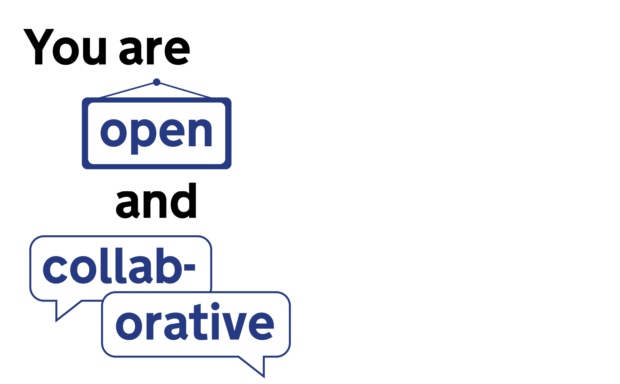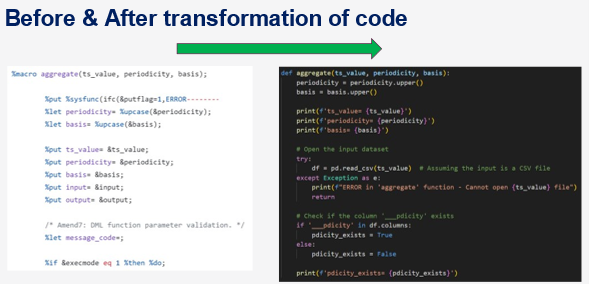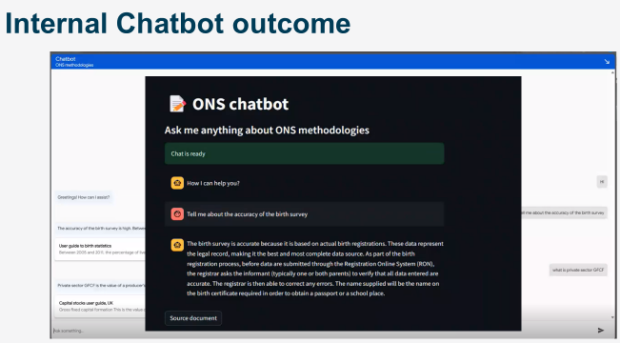
Generative AI is a broad label used to describe any type of artificial intelligence (AI) that can be used to create new text, images, video, audio, or code. Our hackathon aimed to explore the potential of Generative AI in software development, particularly in converting legacy code to modern technology and developing an internal chatbot.
Hackathon goals
The 3 day hackathon was an opportunity for our teams to explore and leverage AI technologies in software development. The event focused on two primary goals:
- Converting Legacy Code. Teams were tasked with converting legacy code from SAS/VB6 to Python using GitHub Copilot's generative capabilities.
- Internal Chatbot Development. Another significant challenge was the development of an internal chatbot using GitHub Copilot and GCP Artificial Intelligence Services.
Hackathon challenges
The hackathon presented several technical challenges, including the conversion of specific functions and applications from SAS/VB6 to Python. Some of the notable challenges included:
- Converting SAS Aggregate and SML Functions to Python
- Adapting a VB6 Stock Trading Application to a Python Flask Web Application
- Translating SAS Neural Network Code to Python for 2D plotting
- Developing a conversational chatbot with Natural Language Processing capabilities
Team experiences & outcomes
The participating teams employed various approaches and strategies to tackle the challenges. Each team's unique approach and outcomes contributed to the overall success of the hackathon. Some of the notable team experiences and outcomes included:
- Team 1: Divided into sub-teams, completed all challenges, and used GitHub Copilot to deploy the application.
- Team 2: Adopted a mob programming approach, completed one challenge with high quality, and explored code optimization features.
- Team 3: Focused on the VB6 project first, completed specific challenges, and extensively used the GitHub Copilot Explore feature.
- Team 4: Developed an internal chatbot based on a low-code approach and customized it into a V2 version.
Key takeaways
The hackathon demonstrated the potential of Generative AI in software development and highlighted the future possibilities of increasing productivity and innovation in this field. Notable takeaways from the event included:
Significant reduction in code conversion time. GitHub Copilot demonstrated a substantial increase in productivity, reducing the time for code conversion significantly.

Successful Chatbot development. The successful creation of a working chatbot using GCP services showcased the potential of AI in this area.

Next steps
We're now going to further explore and implement Generative AI technologies. Some of the proposed next steps include:
- Initiating a GitHub Copilot/Chat Trial with software engineers (started with about 25 users from 15th December 2023).
- Investigating methods to expedite code reviews using Generative AI.
- Exploring the fine-tuning of GitHub Copilot Large Language Model for private codebases
Conclusion
The hackathon proved the potential of AI in software development and its ability to revolutionise traditional processes. The event's success and the outcomes achieved by the participating teams underscore the significance of embracing AI technologies in the pursuit of enhanced productivity and innovation.
If you're interested in a digital, data and technology career with us, have a look at our current career opportunities on Civil Service jobs.
Leave a comment